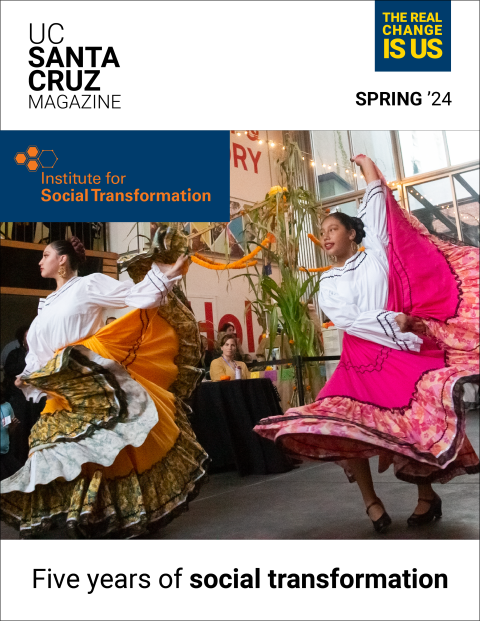Over the past week, many questions, comments, inquiries, and demands have come our way regarding last week’s disruptions. As most of you know, the week involved four days of student protest that took various forms, from rallies and marches to blockages of roads.
Six of our students were arrested for blocking Highway 17 for several hours. Community outrage has been acute; more than 4,200 people have signed an online petition calling for the expulsion of any students planning or participating in similar actions, and letters and comments in local media have been sharply critical. Since then, we have also received demands that the students involved should be held immune from discipline because their conduct occurred off-campus.
Federal law prohibits discussion of any individual student disciplinary matter, and, of course, the outcome of any student conduct matter cannot be determined until all have had a fair opportunity to be heard. However, it is imperative that we correct some general misimpressions about our student code of conduct.
Off-campus conduct does not enjoy immunity from discipline. In fact, our Code of Student Conduct (Section 101.10(h)) specifically covers off-campus “conduct which egregiously and/or repeatedly has negatively impacted members of the surrounding off-campus community and which violates federal, state or local law/ordinances; or conduct which severely impacts or strains emergency response abilities in the surrounding community.” Upon accepting admission to the university, students agree to abide by the student code of conduct and meet the expectations of respectful behavior.
Clearly, blocking a main highway would negatively impact our surrounding community; traffic was disrupted throughout the area, and the blockage placed a heavy burden on emergency services to deal both with the blockage as well as traffic diversion. In the judgment of the county district attorney, the blockage also constituted a violation of law and criminal charges related to these incidents are being pursued.
We have also received concerns about the due process rights of the students involved in the blockage of Highway 17. Student disciplinary proceedings are governed by significant guarantees of due process and must provide a full and fair opportunity for students to be heard. This is our standard in all student conduct matters. The right to a fair process, however, does not equate with the absence of disciplinary action, and it would be misleading to conflate the two.
Other protest activity has also come to our attention. On Wednesday, protesters established on-campus “checkpoints” to illustrate concerns about the Israel-Palestine conflict. Students were physically blocked from entering specific doorways unless they produced identification. While we worked to ensure that alternate avenues of entry were available to students who wished to avoid these protests, some students felt particularly targeted, and hate/bias reports resulting from this aspect of the protest are under review.
Finally, on Thursday, protesters blocked two points on campus (the Hagar/Coolidge intersection and the West Entrance), preventing people from moving freely onto and off the campus. These blockades were established early, and we determined that for safety reasons we could not ask our employees to attempt to gain entry to the campus. As a consequence, students were unable to access the classes that they pay to attend. Faculty and graduate students could not get to their offices, laboratories, and studios, and people who live on campus could not get to jobs, medical appointments, and childcare. Important campus services such as dining, OPERS, libraries, and the health center were either closed or suffered dramatically limited access. This does not include the financial costs to the campus—the salaries paid for people who could not work, the contractors who could not make deliveries, and additional emergency services that were needed.
Ironically, what was lost during this week was the very real issue of tuition increases, an option that UC has proposed in the face of waning state support that does not match the mandatory costs we incur. UC Santa Cruz faces a $7 million deficit in the coming academic year; the proposed tuition increase would alleviate only $4 million of that. If enacted, the tuition hike would mostly affect our middle-income students and their families.
The tactics used by protesters, however, overshadowed this exceptionally important issue of tuition levels. Far from amplifying the important political dialogue regarding UC tuition, these protests created a narrative that was overwhelmingly about the disruptive impact of the protests themselves. This is more than just a missed opportunity. It is a shame.


